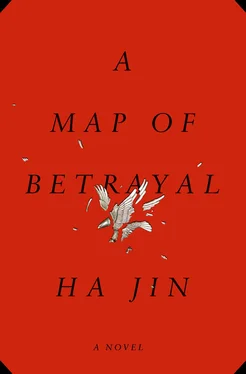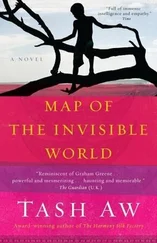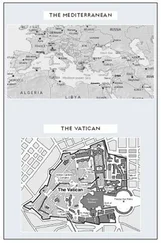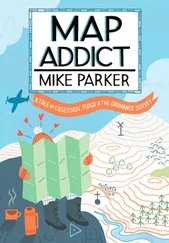He was heartened by the Chinese leadership after Mao. In his diary he wrote about Deng Xiaoping, the new chairman: “That short man can become a Napoleonic figure and should be able to keep China on the right track. He may even outshine Mao eventually. At least he is more prudent and more practical and understands economics.”
For Lilian’s education at Bryn Mawr, Gary had spent most of his savings. Now he was in his mid-fifties and in poor health, suffering from bursitis in one shoulder. Recently he’d been diagnosed with early-stage diabetes, and his doctor had urged him to watch out for starch and sugar in his diet — he had to avoid eating white bread and rice. At most he could have a slice of pumpernickel at a meal, or a bowl of oatmeal for breakfast; he ought to eat more vegetables and protein instead. So Gary had to quit munching all the fine pastries Nellie brought home. In fact, he suspected it was the sweet food that had made him ill. When shopping, at the sight of fresh coffee cakes, for only ninety-nine cents apiece, he’d be overtaken by such a rush of craving that both his mouth and eyes would water, and he’d have to drag himself away. Never had he been so full of self-pity, which he knew was ridiculous and might be a sign of feeblemindedness. During the daytime he often felt dizzy and thirsty, his limbs heavy. No matter what he ate or drank, there was always a bitter taste in his mouth. He noticed the change in his fingernails, flat and wider now, each a miniature spade. Even his eyesight was deteriorating — he saw more tadpoles and pearl drops swimming around whenever he opened a book or magazine. He got a pair of glasses, but he didn’t like to wear them; most times he pushed them up on his forehead.
Gary’s poor health made him ruminate about the possibility of an early retirement. He had read some books on spies and knew that most of them had come to grief, unable to evacuate before getting caught. Perhaps his failing health was a signal for the necessity of a clean withdrawal. Yet he also believed that once he retired from the CIA, he might become worthless to China, so he had to take care not to jeopardize his standing in his superiors’ eyes. A useless man is less valuable than a pet, he would remind himself. Indeed, how frightening it would be to become a person no one wanted.
Over the years he had gathered information on the privileges that high-ranking officials in China enjoyed, and he knew that if he lived there, as a vice minister he could have a chauffeur, a secretary, an orderly, a chef, a nurse, special medical care. True, a senior official in China didn’t pull in a handsome salary, only two or three hundred dollars a month, but his life was free from material worries — everything was provided by the state. In contrast, here he’d have to live an uncertain life, the prospect of which unnerved him. On his way to work he would pass a small nursing home, in front of which stood a tall pole flying a U.S. flag; just the sight of the place would remind him of the wretched final years of life that many Americans could not escape. Nellie’s mother had died in 1974, and soon afterward her father went to a local nursing home. Luckily for the old man, he had only his debt-ridden vegetable farm to lose to the state of Florida. Gary and Nellie once drove down to visit Matt at that place, and the old man wouldn’t stop blaming them for not bringing him a bottle of Jack Daniel’s or Wild Turkey. Matt, frail and addled, claimed that his boy often came to visit him with a six-pack of beer and barbecued wings, though Jimmy, his only son, had fallen three decades ago in the Battle of Savo Island. On their drive back to DC, Gary told Nellie that he’d kill himself before he ended up in such a place. A wheelchair might be acceptable, but he would never be fed and washed by strangers. These days he couldn’t help but be preoccupied with thoughts about his old age. If China didn’t call him home, he’d be stuck in the existence of a lowly CIA translator and then in that of the senile elderly, so he’d better do something before it was too late.
THE PREVIOUS WINTER Peggy had slipped on her way to the bakery and sprained her ankle. She’d had a slight limp ever since and slowed down considerably. She often used a cane when walking. Lately she’d been saying she wanted to sell her business so she could move to New Orleans to join her daughter. One day Nellie asked her, “How much will you sell it for?”
“One hundred and twenty grand,” Peggy said in a nasal, scratchy voice.
“That’s a humongous amount for a bakery!”
“But it’s worth it. We just updated most of the facilities last fall. We have a steady clientele and have been around for more than twenty years. This place is a small cash cow, you know.”
“If I buy, will you sell it cheaper?”
“Well, business is business, we shall see.” Peggy smiled, which seemed to imply this could be negotiable.
“Can you wait until I figure out how to get the money?”
“Okay, I can hold on to it for a while.”
Since then, the two often talked about the price. They knew each other well enough to banter casually, so they haggled back and forth. Three weeks later Peggy agreed to sell Nellie the bakery for $105,000, her final offer.
Nellie suggested taking out a home equity loan, but Gary disagreed. He said, “If we miss a few payments, we might lose the house. No, we mustn’t run such a risk. What if I die? You might become homeless.”
“Oh, c’mon, don’t be so pessimistic. I’m more likely to croak before you.” That was what she believed, because she’d always had health problems.
“Let me figure out a way, okay? For now, tell Peggy you’re going to buy her bakery. Just make sure she won’t sell it to others.”
Gary had about forty thousand dollars in his Hong Kong bank account but would need another sixty-five grand. For days he’d been weighing his plan to get the money from China directly and thinking about the repercussions of such a demand. He calculated that such a move might tarnish his reputation in his superiors’ eyes but wouldn’t ruin him, because for better or worse he had made a considerable contribution to their motherland. There wouldn’t be enough reason for them to strip him of his rank when he returned to China. Above all, he felt entitled to make such a request. So he wrote to Bingwen and asked for seventy thousand dollars, saying he needed the cash immediately for some important work here. Within a month the amount was deposited into his account at Hang Seng Bank. Bingwen didn’t even ask how the money would be spent when he wrote back; he just informed Gary: “The goods were delivered.”
Now came the more dangerous step: to transfer the cash to his bank account in the States. Gary knew that if he moved such a large sum all at once, the FBI would notice it, but he had to act now. He was the kind of man who could remain torpid, biding his time for decades, but the moment an opportunity came up, he’d spring to life and act with reckless resolve. There’d be some risk, he understood. But to his mind, this might be the last thing he did before clearing out of America, so he wouldn’t care about what might come afterward. Every three or four days he wrote a check to transfer six or seven thousand dollars from Hang Seng Bank to his Citibank account.
The cash was ready six weeks later, and he gave Nellie a cashier’s check for the bakery. Surprised, his wife asked, “Where did you get so much money?”
“I borrowed it from my cousin in Taiwan. An interest-free loan.”
“Why don’t we sign the contract together? You’ve spent so much for the bakery.”
“I don’t want to be any part of it.”
“Why, Gary? You … you’re mad at me?” Nellie stammered, sucking in her breath.
“No, I want you to have the business, so all the paperwork should be done under your name. It’s better that way.”
Читать дальше











